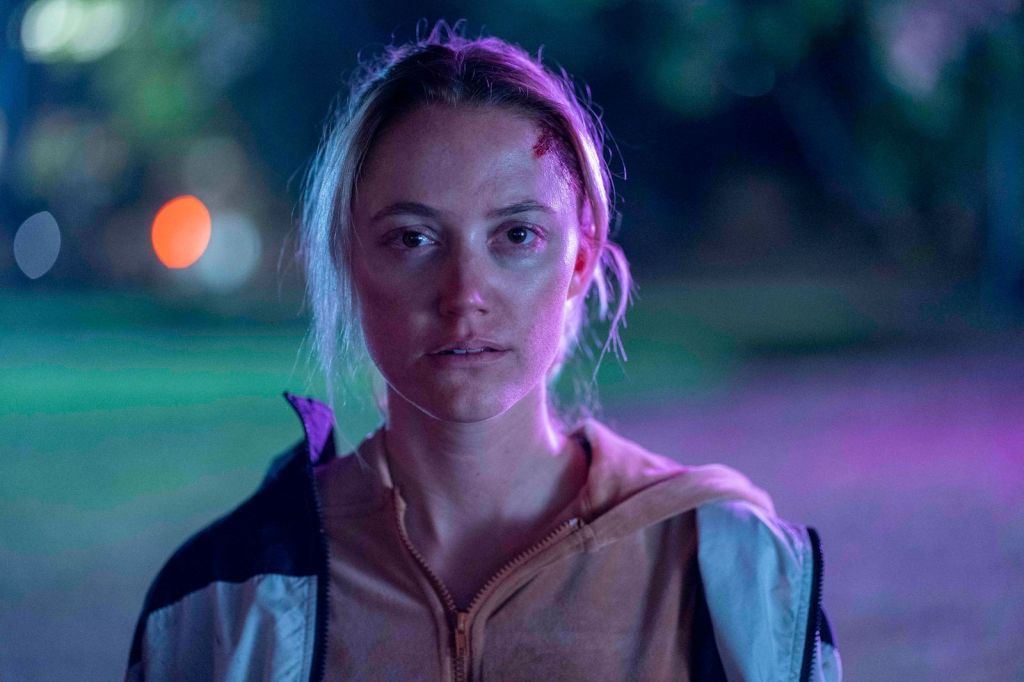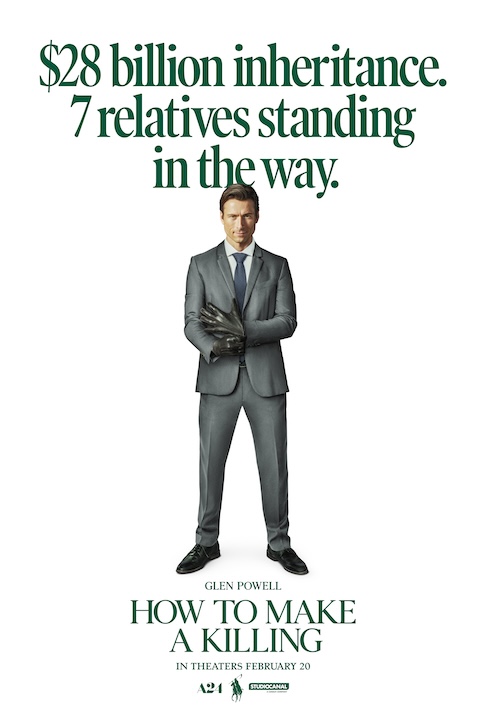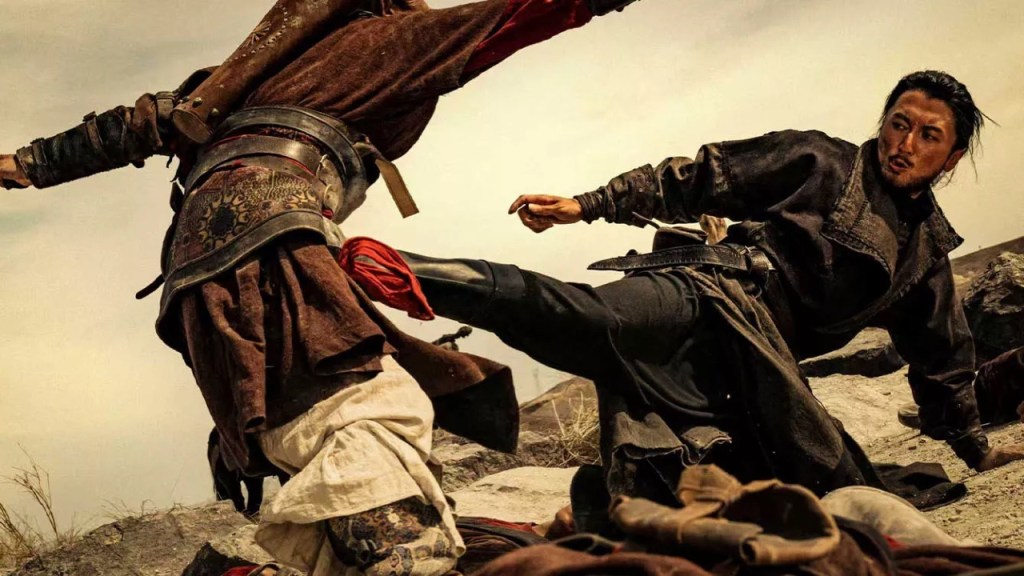War photographers are a unique breed. Asked to thrust themselves into the same type of combat as a trained Armed Forces member but without the means to defend themselves, their point of view is often the most truthful aspect of whatever human disaster they’re covering.
In Alex Garland’s provocative in theme but middling in execution new film Civil War, the photographer is the audience’s surrogate as an unspecified division in our country has led to all out bloodshed between the secessionist “Western Forces’ of Texas and California and the government led by a barely glimpsed President (Nick Offerman). Veteran press corps members Lee (Kirsten Dunst) and Joel (Wagner Moura) are constantly in the middle of it, and their black and white images (the truth) of the violence in front of them are the only reprieve given while bullets and explosions waft around them. From the lifeblood running out of someone’s eyes to the carnal aftermath, Civil War comments most strongly in these images that spray across the scene in silent judgement. If nothing else, the sound mixing in Civil War is highly impressive.
But just capturing these images isn’t enough for Lee and Joel who formulate a self-appointed mission to travel from New York to Washington DC in the hopes of getting an interview from the President before either side wins. Before long, Lee meets a young freelance photographer named Jessie (a wonderful Cailee Spaney) who wiggles her way into their press vehicle the next day and joins the crew (plus veteran stalwart Stephen McKinley Henderson) as they begin a heart-of-darkness descent southward. Our audience surrogate just got even more innocent in the performance of Spaeny, whose lust for a career buckles against the haggard, been-there-done-that attitude of her traveling companions.
Alternating between quiet moments of fraternity/life lessons between the four war correspondents and the wham-bam jump cut of their brave existence to get that perfect shot in-between thudding bullets and deafening explosions, Civil War works best in this middle portion as the group maneuvers from car littered apocalypse main highways to the autumnal backroads where vigilantes seem to hold sway, never sure what type of mayhem or human cruelty they’ll encounter next. In fact, it’s probably for the best that writer-director Garland doesn’t give us any relevant backstory to the initiation of war, instead mixing omniscient tension between every human interaction. Whether it’s someone protecting their gas station or dumping bodies into an open grave, the idea of being an “American” is a virtual dice roll in hell.
But beyond these moments of sustained horror, Civil War is surprisingly hollow. Even though the performances are good, the film follows a distinct pattern of shock and relief, followed by an ending that’s less memorable than it wants to be due to the film’s ambivalent approach to its two-dimensional characters. Plenty of time is spent on disturbingly chaotic images of war timed to expert needle-drops, but we don’t get much else. Yes, Dunst’s Lee tries to give young Jessie some professional pointers, but their relationship hits a high note as they sit in a concrete stadium developing film together, and then not much else before they jog onto the next scene of violent confusion. Numerous films have magnificently espoused the “war is hell” mantra, and this film doesn’t really add much to the rhetoric.
Lastly, and this is just my perception, but I wonder if the muted ideas of Civil War will be lost on most audiences. Yes, it’s a provocative idea and yes, the film wants us to witness the atrocity of brother against brother through the cooly observational lens of a snapshot. Granted, the last 4-8 years have edged us into pockets of division around the country that (hopefully) we can pull out of, and the idea of Civil War is borne from this highly toxic environment of vehement differences. It wants us to be disturbed. It wants us to realize how bad things can get. And it could even be seen as cautionary allegory post January 6th for how little regard people can have for our institutions. However, based on the comments of “get some” an audience member close by me muttered every time someone took a bullet throughout my screening, my heart sank. I highly doubt it’s Garland’s intention to glorify the idea of all out civil violence, but the film also does nothing to really comment on the state of things beyond what we already know. For all the film’s passive emphasis on seeing images behind a camera lense, it does nothing to purge the insanity of how we got to those images.
A24’s Civil War opens in the Dallas/Fort Worth area in wide release on Friday April 12th.



